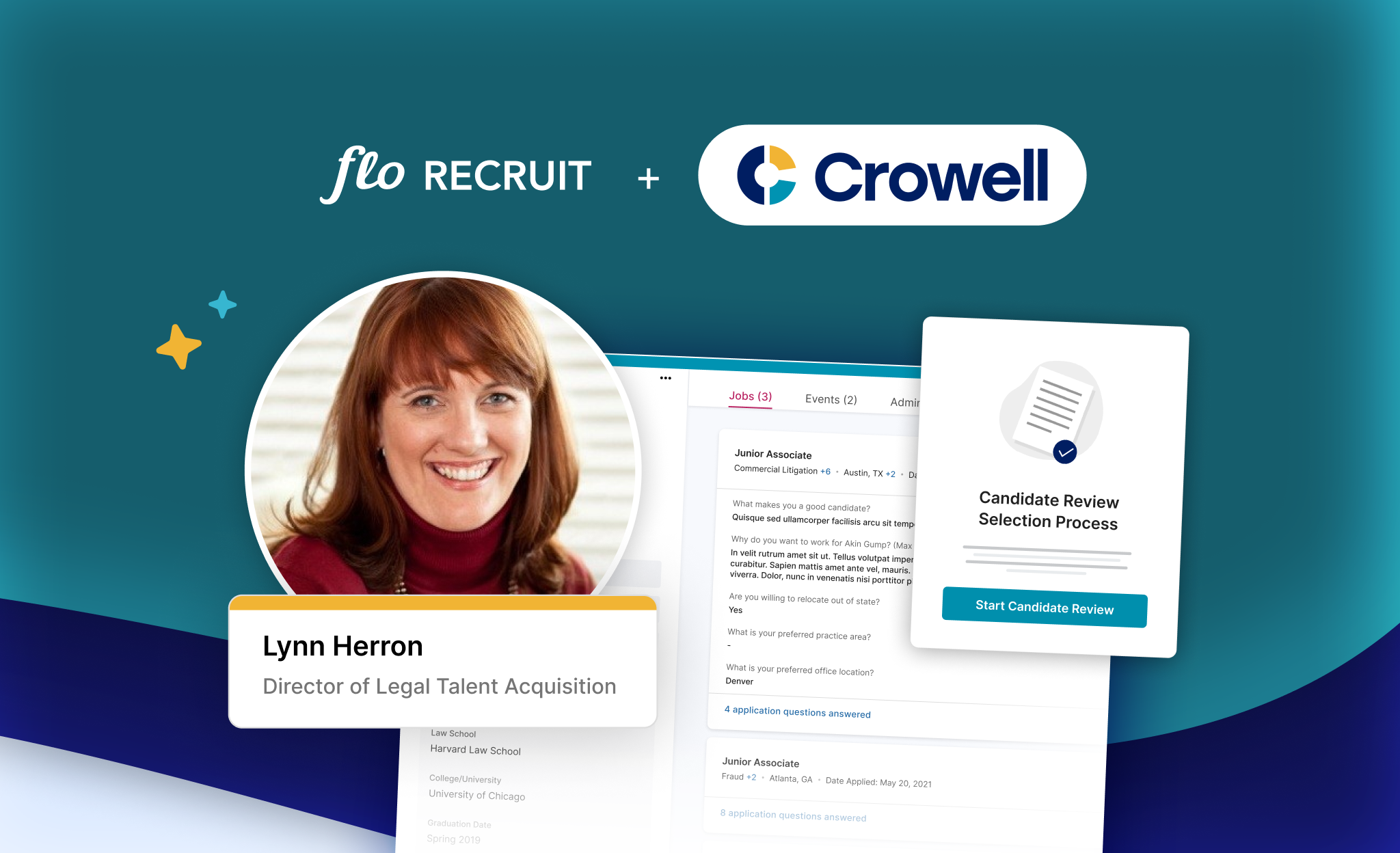Mastering Mentorship in Law: The importance of a mentorship relationship in your legal career.
Explore the vital role of mentorship in the legal profession with Flo Recruit and The Legal Mentor Network.
In the legal profession, mentorship transcends simple guidance—it's a pivotal element for both personal and professional growth. The practice of law is one of the few remaining apprenticeship professions and mentorship is a vital link that bridges the gap between theoretical knowledge and practical application. Law schools excel in teaching students to think like lawyers, emphasizing critical thinking and legal reasoning. However, the practical aspects of law—applying legal theory in real-world scenarios, managing client relationships, and navigating the intricacies of law firm dynamics—are learned on the job. This is where mentorship becomes invaluable.
Mentorship in Law: Navigating Career Progression and Technological Adaptation
As the legal landscape continues to evolve, adapting mentorship practices becomes crucial. By leveraging technology, creating structured plans, and nurturing a culture of continuous learning, both mentors and mentees can thrive in their respective career stages.
Enter Flo Recruit and The Legal Mentor Network. The Legal Mentor Network was the brainchild of Brian Potts, Perkins Coie LLP, who was overwhelmed with mentor requests after one of his LinkedIn posts went viral. With the help of countless colleagues and practicing attorneys, Brian was able to answer every question he received. Brian solicited additional help from co-founders Matt Schwartz, DLA Piper, and Chrystal Mauro, IBM, to formalize this out of the ordinary mentorship process. The Legal Mentor Network is now a 501(3)(c) non-profit that focuses on providing free professional mentorship to all law students and early career attorneys. You can sign up as a mentor or mentee at www.legalmentornetwork.org. The Legal Mentor Network has perfected online mentoring matches with its unique software and they also host in-person events in New York, Chicago, Los Angeles, Seattle, and Washington, D.C.

The Lifelong Impact of Mentorship
Experienced mentors provide guidance on navigating complex legal issues, managing client relationships, and understanding the nuances of legal practice. This guidance helps new lawyers develop critical skills, make informed decisions, and avoid common pitfalls. Additionally, mentorship fosters professional growth, networking opportunities, and a supportive legal community, contributing to the overall advancement of the legal profession. The Legal Mentor Network’s mentors praise the community for creating unique recruiting opportunities as well as valuable connections that help them give back to the legal community and give advice to the legal community that they wish they had been given when they were first starting out.
Mentorship provides vital support at every stage of a legal career, not just the early years following passing the bar:
- Law Students: Law students are confronted with many choices early on that can alter their whole career path, what type of law to practice, how to get a job, how to network, what professional organizations to join
- Mid-Level Associates: As attorneys seek specialization or partnership, mentors can guide them in building expertise, expanding their professional network, understanding the subtleties of law firm dynamics, and provide support and strategic advice on making a lateral move.
- Senior Associates and Junior Partners: Mentors assist in enhancing leadership skills, developing business, and navigating the complexities of partnership roles and firm politics.
- Senior Partners: Even at this stage, mentors can offer insights into managing larger firm responsibilities, mentorship of younger attorneys, long-term career planning, and even succession planning.
At each stage, mentors provide tailored guidance, ensuring continuous professional growth and adaptation to evolving career challenges. Being a mentor is equally rewarding, with mentors gaining friendships, new connections and new perspectives.

Tips And Tricks: Adapting Mentorship For The Modern Legal Landscape
That said, finding and acting as a mentor is not as easy as it once was. With teams and attorneys spread across multiple offices and geographic locations, not to mention the rise of hybrid working, attorneys can no longer count on face to face interactions to drive mentorship. Combining digital communication with traditional in-person meetings is key to a successful mentor-mentee relationship. This can include:
- Utilizing Collaboration Tools: Leverage digital tools like shared calendars, project management software such as Asana, communication applications like Slack or Skype for Business to take advantage of real time communication and collaboration. These tools facilitate seamless collaboration and ensure both parties are aligned.
- Creating a Mentorship Plan: Develop a structured mentorship plan with clear goals, expectations, and timelines. This provides a roadmap for the mentorship journey and ensures both mentor and mentee are on the same page, even in a hybrid setting. If your firm doesn’t have such plans regularly available, ask if the professional development team can help develop one, or look to professional organizations like your local bar association to see if they might have a template that you can use.
- Encouraging Independent Learning: Alongside regular interactions, encourage mentees to engage in self-guided learning. Provide them with resources and suggest activities that can be done independently to complement the mentorship. If you are a mentee, seek out resources your mentor thinks could be valuable for where you are in your career. For example, a newly-barred attorney might benefit from exemplar motions or “how to” guides, while a more senior attorney might benefit from books on presentation and persuasion skills.
- Feedback and Reflection Sessions: Regularly set aside time for feedback and reflection. This can include discussing challenges faced in the hybrid environment and brainstorming solutions together, fostering a culture of continuous improvement, or just reflecting on the work performed over the last few months. Schedule consistent video calls to maintain a personal connection. These sessions should be a mix of formal and informal discussions, allowing for both professional development and personal rapport building.
You can sign up as a mentor or mentee at www.legalmentornetwork.org.
Subscribe to blog updates!

.jpg)

.png)